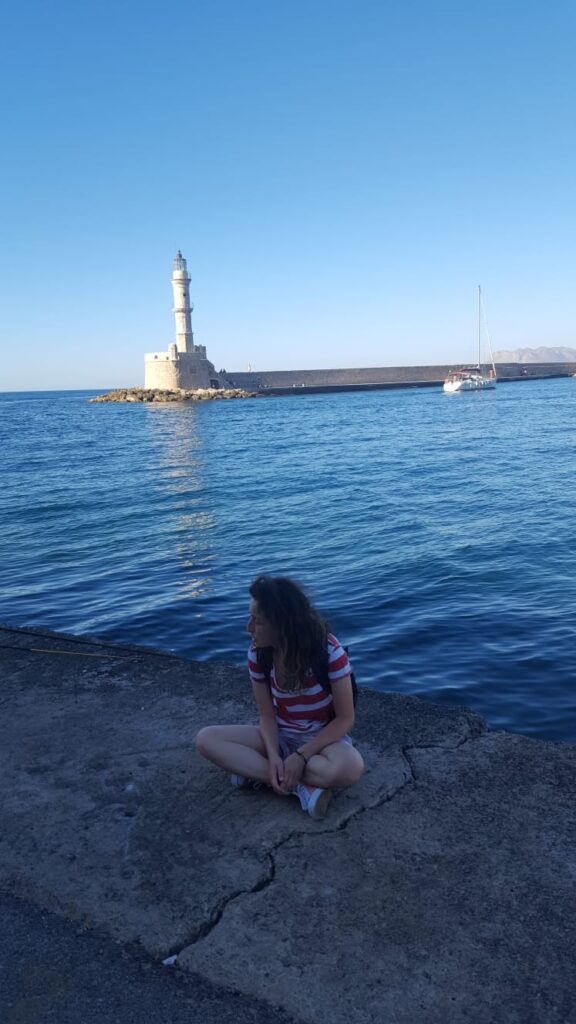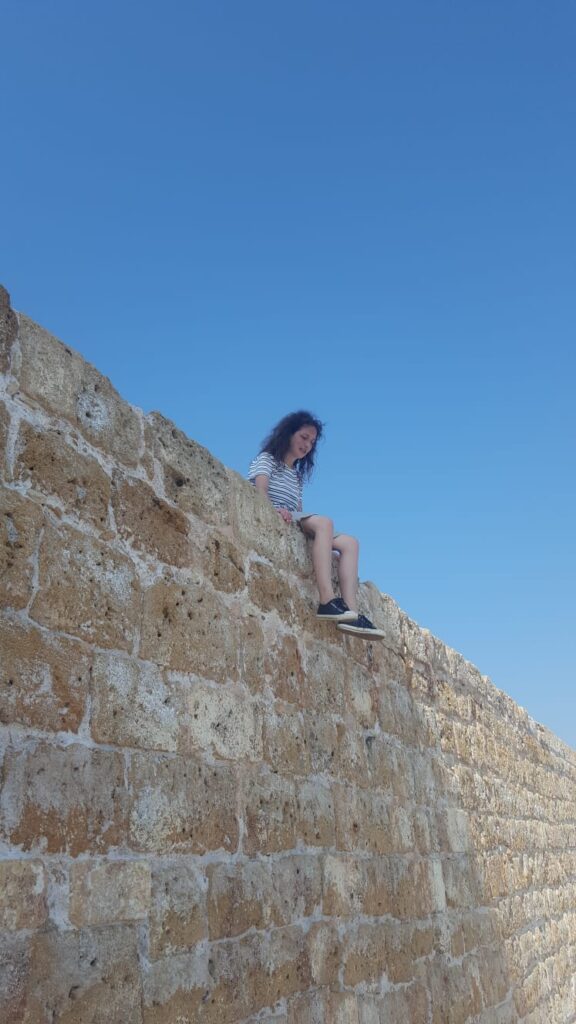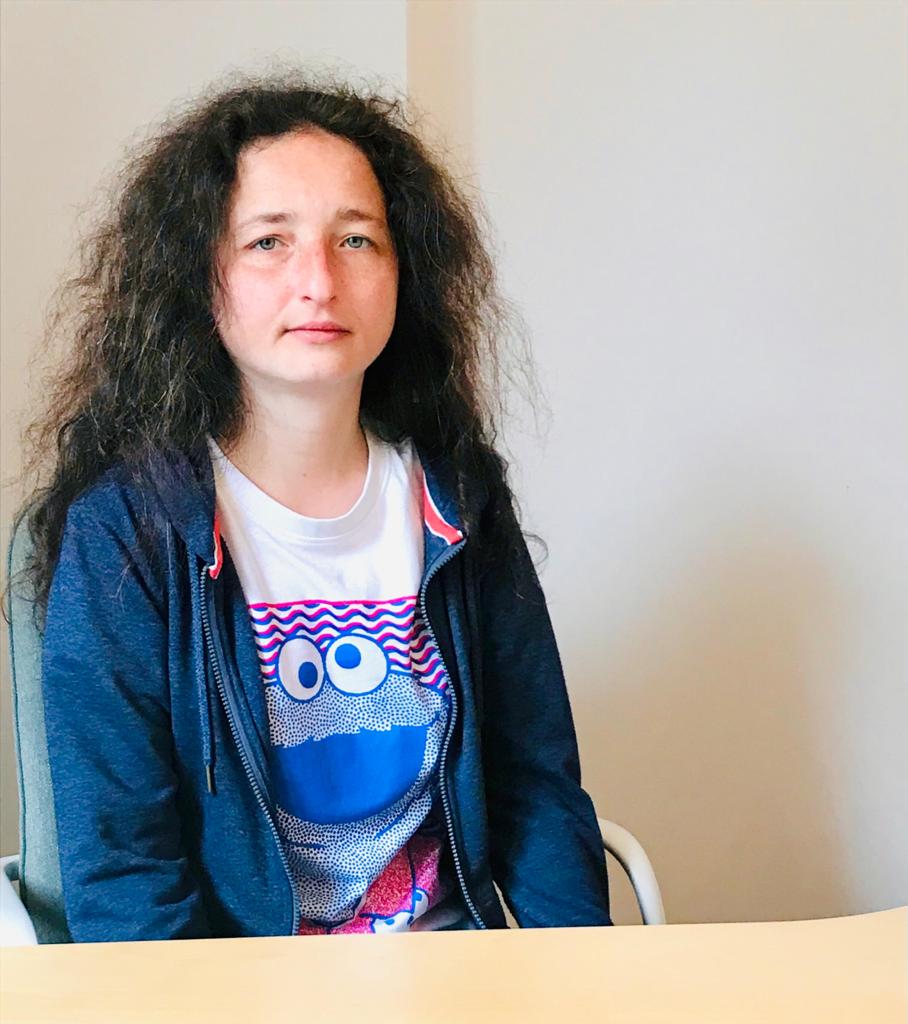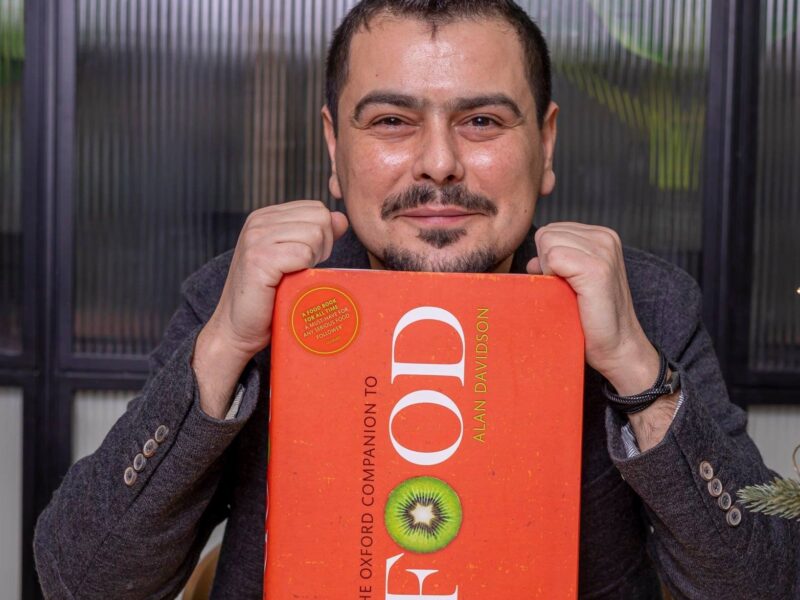Ramona Tănase is Copyright Manager at Art Publishing Group. She has a PhD in philology at the University of Bucharest and published her study on Mircea Eliade at Tracus Arte Publishing House: Politicile lui Mircea Eliade: de la tinerețea legionară la maturitatea exilului. She has a great passion for Portugal, where she studied for a while, and a great weakness – her loyalty to her friends, which I have rarely mentioned or returned. Humous is her strong point.
We’re talking about books, so I’d like to start with what’s most important. Reading. What book knocked you off your feet recently? In the last years? Or since you’ve taken on reading?
Ulysses. But not the way you think:)).I make progress with it; I lost count of how many times I’ve tried. At the beginning of the pandemic I told myself that that’s the perfect moment to come back to it. As Marin Preda would say, time seemed to be patient since I didn’t get out of the house for days. And again the way Preda would say:' time didn’t have patience anymore' and Ulysses remained unread. And I don’t know why I have the vague impression that that’s how it will remain to the end of my days, despite multiple attempts that are still to follow.
You’ve been a rights coordinator at the Art Editorial Group since 2017. Tell me a bit about your job description and your previous experience.
Let’s say the previous experience was diverse😉. My imposing career began as a life insurance broker. Anyway, that’s what I was supposed to do, but let’s say I realized right from the moment of the interview that I don’t stand a chance. With all that, I tried to do it for like 3 months so I could tell about it years later. The experience was very successful, I sold 2 insurance policies to some acquaintances and as a bonus I received a mobile phone which I lost shortly after. After that I worked for 5-6 years in multinationals on various francophone projects 😊. After I finished my studies I thought time had come for me to work in my field of choice and I worked at The National Museum of Romanian Literature for 2 years.
Since August 2017 I’ve been working at the Art Editorial Group, taking care of the copyrights department. What I do is buy the titles we want to translate. I find manuscripts, the owners of the rights, I make them an offer, I negotiate contracts, get the editable files etc. More or less, who’s keeping count? The important thing is for us to publish the books.
As far as foreign literature is concerned, you’re the middleman between editors and literary agencies or other rights owners. You probably get tens of suggestions for newly promoted titles every day (at least two from me). How do you filter them and how do you make sure you don’t miss the next Nobel Prize in Literature?
I’m praying to all gods :)))
Well, I read every mail, I have a look at the synopsis or manuscript or whatever it is. And if something seems interesting, I talk to my colleagues who coordinate our imprints to see what they think. We have external reviewers whose opinions we ask for when we are in doubt whether a book is a good fit or not.
Sometimes I’m the one who writes tens of messages to agents :)). Maybe because I was recommended a book or another, or we’d like to read a certain one and so on and so forth.
Has it ever happened to you to regret going too fast over a title or an author that ended up being famous? Or the other way around? To bet on a book that didn’t seem to have many chances, to convince the collection coordinators to accept it and to see it end up being a hit?
Yes and yes. Especially the first “yes”, that’s inevitable to happen, it can’t be helped. You get over it and hope that the next time it happens won’t be in the near future :).As for the second “yes”, you can only hope you had an inspired day when you took the decision. And then you pray to all gods that the title receives the recognition you think it deserves and that all the stars align and readers resonate. And many others “ands”. Exactly like in everyday life.
Many times, in order to obtain the rights for a title, a negotiation takes place between you and their owner or the literary agent that represents them. Can you see any difference between the way you were negotiating an offer at your beginnings in Art and the way you are doing it now? What are the tools that help you perfect this skill?
You know what it’s like, everything comes with time. Repetition is the instrument. There’s an enormous difference, but I still have the same lump in my throat when, inevitably, prices go up to considerable amounts in auctions. And I’d like the title, but at the same time I wouldn’t like to “help” ruining the market by bidding enormous sums without coverage etc.
Can you divulge some aces up your sleeve that you’ve used and that helped you win bids?
Personal charm (luckily, most of us have never met in person) :))).
You know that tear-jerker quote from Nichita Stănescu, “I gazed into Arghezi’s eyes who gazed into Eminescu’s eyes”. Did you ever have the feeling, working with J.K. Rowling’s agent, the most famous and well paid author of all times, that you, in a way, talked with the writer herself? I’m joking. You have in your portfolio one of the greatest names of the universal literature. Do you feel like you are, through your job and the publishing house you’re working for, part of the snowball that rolls through the world the success of authors such as J.K. Rowling, Astrid Lindgren, Margaret Atwood, Fredrik Backman or, for the former Literature students, Edward Said or Harold Bloom?
I feel I’m a part of the publishing house. And that, inevitably, we’re all screws (bigger, smaller, rustier, more oiled) of the international editorial mechanism. I go with the flow.

You’re in charge of obtaining rights or quoting or publishing permissions from Romanian authors too. Is the way of approaching them different from the acquisition of foreign titles?
It is, yes, because I write them in Romanian :)) I’m joking and not really. It does because, unfortunately, or I don’t know, maybe fortunately, we’re talking about different markets, different requests, different expectations. Different mentalities. You know what it’s like with identity and otherness. Pretty much the same here too.
For someone who doesn’t have contact with the domain of copyright, how do you discover who owns the rights of an author who’s no longer alive and whose descendants are unknown?
Better ask how you don’t do. You start raking the great internet, you ask left and right, maybe you know some from past experiences. But before everything, if we’re talking about Romanian authors and you don’t know for sure who the heirs are, the first institution you go to is CopyRo, The Collective Inventory of Copyrights Society. And if it’s not in their portfolio, go ahead and search.
If we’re talking about a foreign author, you search to see if they have an estate that manages their copyrights, if the estateis represented by an agency, if the agency is represented in Romania by another agency and so on. Like the famous saying: hand in hand to the… end of the world.
That’s what I went through when I was looking for the illustrator of Aumădoare [Dr. Ouch by Korney Chukovsky]. After I ran out of official sources and didn’t find him, I talked to a friend who had a friend in Russia, whose aunt had friends in the Russian editorial industry. And I got hold of his phone number. Laura Albulescu [Art Publishing House’s editor-in-chief] contacted a friend who had a friend who knew Russian and she called him on our behalf, his wife picked up and everything seemed to go well until she put an end to the conversation by saying: “Please get back later, the ambulance has just arrived to take him to the hospital.” Luckily, there was nothing serious and that’s how Laura fulfilled another one of her dreams and launched with bells and whistles the Arthur Retro collection. And the rest is editorial history :).
What is the most interesting experience with the authors or the descendants of the Romanian authors (be them writers, illustrators or translators). I’m thinking here of the Arthur Retro collection you mentioned above, in which you published new editions of existent books on the Romanian market from tens of years ago. I assume each title was an adventure.
Firstly, I have to point out that Laura, the initiator and coordinator of the collection, deals with finding the authors and the descendants of the Romanian authors. There were only a few cases when we went together to look for them. But only one is memorable for both of us.
I was together with Laura on the streets of Bucharest on an extremely hot day (both of us big fans of the heat since birth) and we were going to a museum that included in its collection some of the works of the illustrator we were looking for. We didn’t have any information about the descendants, absolutely nothing. We had to start from somewhere, so we went to the museum to see if they could help us. It took a while for the gentlemen from the museum to understand what we wanted, but it was certain that they didn’t own the rights and they didn’t seem to know who the descendants were. After long negotiations, we managed to find the notarial act through which the descendant had donated the respective works to the museum. We now had a name and an address from a paper dated to the beginning of the ’90. I won’t disclose the full name from obvious reasons, but we left in searching of a certain Mr. René Icsulescu.
We got to the respective building, we were lucky to bump into the administrator, we asked him about Mr. René Icsulescu and he told us that we could find Mrs. Icsulescu at the apartment Y. Laura and I were already picturing the scenario: Mr. René had died and, obviously, Mrs. Icsulescu is the heiress. Maybe they had children too; we had already drawn the genealogical tree by the time we got to the door. A lady welcomed us and we tried to explain to her that we wanted to talk about what happened with' Mr. René because we wanted to publish the book illustrated by his father, to close a contract etc. Her candid answer was: I am René Icsulescu, that’s what my father named me. And talking with the lady I saw that copyright was not the only thing she inherited, but his sense of humour too. And since then we’ve called René only Mr. René :)).
Speaking of adventures, among the exciting experiences that go with your job description is participating in international book fairs - Bologna, London and, the mother of all book fairs, Frankfurt, where almost everybody in the book industry, who has more or less to do with copyright, reunites. What is it like for you at book fairs? Do you remember something interesting from the first one that you went to, maybe?
It’s a razzle-dazzle at book fairs, chaos, joy, serious discussions, trifling discussions. Meetings, books, agents, writers, editors. It’s the entire activity of an industry concentrated in a week. The quintessence, so to say.
I remember the huge pavilions at the Frankfurt one, the first one I attended, and that I was going around like a headless chicken, I didn’t really know what I was doing with my life. And my sneakers rubbed, they weren’t used with my legs to walk that much.
Something memorable was a party held by a Russiany house. I’m not saying more, professional secret. :))) :))))
But how important are these book fairs for a publishing house? What is the return on investment in taking part in these fairs?
They’re very important. Especially for socialising and networking, I think that is the main return on investment. You develop and maintain relationships with the people you collaborate with and who can help you in your endeavour to do your job as well as possible.
Speaking of book fairs, you participate in the local ones too - Bookfest and Gaudeamus, Bucharest. As opposed to the ones mentioned above, dedicated to the book industry professionals, these are book fairs with book sales, open to the public. Excepting the last year, when book fairs moved online because of the pandemic, what is their role from the point of view of a copyright coordinator? Do you have memories from those too, that are worth telling? Ai și de aici ceva amintiri demne de povestit?
For me, they are interesting solely from a sociological point of view. I might have a few meetings in case participating professionals from abroad ask for one. Other than that, I’m usually at our stand and I watch how and what the visitors are buying, what interests them, what are they looking for, what questions they put, what feedback they give us etc.

Since I would like this site to be useful for young people, students interested in the editorial domain, please tell me how much the fact that you graduated a faculty of letters and that you hold a PhD in literature matters in your daily professional activity. How much does previous experience help? Sau cât de mult ajută experiența
anterioară?
It matters. Pretty much, I’d say.But it’s not essential. We obviously know cases of people who succeeded in other domains than what they graduated. It helps because you don’t have to start from scratch. You have some guiding points that you can refer to. There are many things to learn besides what you learnt in university or by getting your PhD, because literature is a living organism (to graciously tick all clichés).
Everything matters, absolutely everything. Experience too. And education. And character. And what you did do. And what you didn’t do. And what you were too lazy to do. And what you did only to have something done. Și ce ți-a fost lene să faci. Și ce ai făcut în
silă.
For me, as a literary agent, one of the coolest feelings is when I manage to sell abroad the rights for Romanian books that I liked very much – as is the case with Alex Moldovan’s novel, Olguța și un bunic de milioane / Olguța and the Million Dollar Grandpa or Liliana Corobca's, Caiet de cenzor / The Censor's Notebook.What are your moments of glory?
When I win an auction for a title we want by all means. And when I obtain a grant.
To go back to where we started. What background music would you have for to the book that knocked you off your feet?
Dă, mamă, cu biciu-n mine! [song by Romanian musician Gabi Luncă]. (Translated into English by Silvia Codescu)



